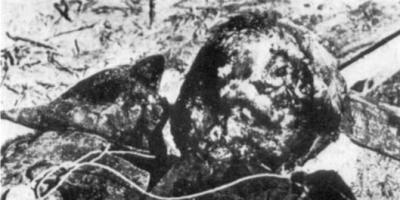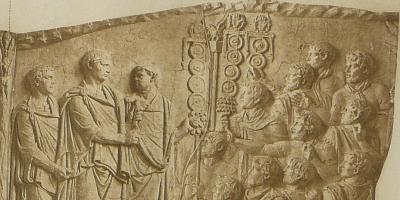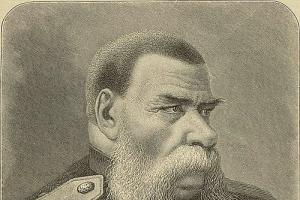A comma is placed before the conjunction HOW in three cases:
1. If this conjunction is included in phrases that are close in their role in the sentence to the introductory words, for example: AS A RULE, AS AN EXCEPTION, AS A CONSEQUENCE, AS ALWAYS, AS NOW, AS ON PURPOSE, AS FOR EXAMPLE, AS NOW: In the morning, as if on purpose, it started to rain;
2. If this conjunction connects parts of a complex sentence, for example: We watched for a long time as the coals of the fire smoldered;
3. If the sentence contains a circumstance expressed by a comparative phrase that begins with the conjunction HOW, for example: Her voice rang like the smallest bell;
Please note: if the sentence continues after the phrase with the conjunction HOW, then you need to put another comma at the end of the clause. For example: Below, the water shone like a mirror; We watched for a long time as the coals of the fire smoldered, unable to tear ourselves away from this spectacle.
The phrases with the conjunction HOW are not isolated in five cases:
1. If the phrase with the conjunction HOW in a sentence acts as an adverbial circumstance of the course of action, for example: The path twisted like a snake. In such cases, the phrase with HOW can be replaced with an adverb (IN SNAKE) or a noun in the instrumental case (SNAKE). Unfortunately, the circumstances of the course of action cannot always be distinguished with complete confidence from the circumstances of comparison.
2. If the phrase with the conjunction HOW is part of a phraseological unit, for example: During lunch she sat as if on pins and needles;
3. If a phrase with the conjunction HOW is part of the predicate and a sentence without such a phrase does not have a complete meaning, for example: She behaves like a mistress;
4. If the conjunction HOW stands between the subject and the predicate (without this conjunction a dash would have to be placed there), for example: The lake is like a mirror;
5. If the comparative phrase is preceded by the negation NOT or the particle AT ALL, COMPLETELY, ALMOST, LIKE, EXACTLY, EXACTLY, SIMPLY, for example: They don't do everything like neighbors or Her hair is curly just like her mother's;
In addition, we must remember that the word AS can be part of the compound conjunction AS... SO AND... or SO AS, as well as phrases SINCE AS, SINCE THE TIME AS, AS LESS (MORE) POSSIBLE, etc. In this case, naturally, a comma is not placed before HOW, for example: All the windows, both in the manor's house and in the servants' rooms, are wide open.(Saltykov-Shchedrin). He didn’t take cutlets with him for breakfast and now he regretted it, since he was already hungry(According to Chekhov).
Exercise
I would have heard the door opening.
She was pale with some kind of Hindu pallor, the moles on her face became darker, the blackness of her hair and eyes seemed even blacker (Bunin).
And is this really how Paris lived now? (Bunin).
Well, I’ll help, father, just don’t blame me if it doesn’t turn out as planned.
I rarely visited “noble” houses, but in the theater I was like one of my own - and I ate a lot of pies from pastry shops (Turgenev).
When I went to bed, I, I don’t know why, turned around on one leg three times, put on lipstick, lay down and slept like a log all night (Turgenev).
It will sound and whine like a string, but don’t expect a song from it (Turgenev).
Everything about us is not like people! (Saltykov-Shchedrin).
Now, wrapped in a cap and a cloak, from under which a rifle protruded, he rode with one murid, trying to be noticed as little as possible, carefully peering with his quick black eyes into the faces of the inhabitants he came across along the road (Tolstoy).
Millions of people committed against each other such countless atrocities, deceptions, betrayals, thefts, forgeries and the issuance of false banknotes, robberies, arson and murders, which the chronicle of all the courts of the world will not collect for centuries and for which, during this period of time, people, those who committed them did not look at them as crimes (Tolstoy).
The guests arrived out of the blue.
A boy of about fifteen quickly came out of the door to meet him and stared in surprise at the newcomers with sparkling eyes as black as ripe currants (Tolstoy).
While Hadji Murad was entering, an elderly, thin, thin woman came out of the inner door, wearing a red beshmet on a yellow shirt and blue trousers, carrying pillows. (Tolstoy).
I did not accompany the captain as a servant. The clean spring air, compared to prison, also cheered her, but it was painful to step on the stones with feet unaccustomed to walking and shod in clumsy prison boots, and she looked at her feet and tried to step as lightly as possible (Tolstoy).
One of them, the most extravagant, was that I wanted to go to him, explain myself to him, confess everything to him, frankly tell him everything and assure him that I did not act like a stupid girl, but with good intentions (Dostoevsky).
So I studied and studied, but ask me how a person should live, I don’t even know (Tolstoy).
These experiments could have been carried out either a month earlier or a month later.
The streets between the houses were narrow, crooked and deep, like cracks in a rock (Andreev).
Amateurs use this fish as a natural clock in a room aquarium (According to V. Matizen).
In the west, the sky is greenish and transparent all night, and there, on the horizon_ as it is now_, something is smoldering and smoldering... (Bunin).
Rostov felt how, under the influence of the hot rays of love... that childish smile blossomed on his soul and face, which he had never smiled with since he left home (Tolstoy).
There were people in the carriage like sardines in a barrel.
It contains irony, not as a style feature or technique, but as part of the author’s general worldview (Lakshin).
When Stepan Trofimovich, already ten years later, conveyed this sad story to me in a whisper, having first locked the doors, he swore to me that he was so dumbfounded then on the spot that he did not hear or see how Varvara Petrovna disappeared (Dostoevsky).
But the eyes don’t seem to be stupid and shiny, like Maria Kresse’s (Bulgakov).
“If they knew that you wanted this, the holiday would be cancelled,” said the prince, out of habit, like a wound clock, saying things that he did not want to be believed (Tolstoy).
Armande was already beginning to despair when the local curé, François Loiseau, arrived from Auteuil and became friends with Moliere while he was living in Auteuil (Bulgakov).
But before they had time to rise, a bell rang impatiently behind the doors upstairs (Bulgakov).
“Torment,” he said, “them: now their prayer book is gone,” and he galloped past; and behind this stratopedarch are his warriors, and behind them, like a flock of skinny spring geese, are boring shadows, and everyone nods to the ruler sadly and pitifully, and everyone quietly moans through their crying: “Let him go! “He alone prays for us” (Leskov).
Seeing this, people stopped dead in their tracks. “We've eaten enough, my dears! We celebrated the winter, but by spring our stomachs were sagging!” - Porfiry Vladimirych is reasoning with himself, and he, as if on purpose, had just brought all the accounts of last year’s field farming into clarity (Saltykov-Shchedrin).
As if on purpose, he didn’t come today, and I still have a whole terrible night ahead of me! (Bunin).
Understand that this child whom you are now receiving in the Poklen house is none other than Mister de Molière! (Bulgakov).
The bazaar is like another city within the city (Bunin).
However, the consistent application of this method, which treats literature not as the fruit of organic creativity, but as a medium of cultural communication, eventually began to slow down the development of literary criticism (Epstein).
Next to him she felt like she was behind a stone wall. He had been silent until now, and no one paid any attention to him, but now everyone looked back at him, and, probably, everyone wondered how he could still remain unnoticed (Leskov).
Still young, handsome in appearance, with a fortune, gifted with many brilliant qualities, undoubted wit, taste, inexhaustible gaiety, he appeared not as a seeker of happiness and protection, but rather independently (Dostoevsky).
Half of them even died, but they were not amenable to education: they stood in the yard - everyone was amazed and even shied away from the walls, but everyone just looked at the sky like birds with their eyes squinting (Leskov).
He screams like an eagle: stop, I’ll shoot! (Bunin).
Both students and people with higher education can get confused about punctuation rules. One of the questions on this topic that raises doubts is the comma before “how”. In what cases should it be used and in what cases should it not be used? Let's figure it out.
In what cases is a comma placed before as?
A comma is placed if the conjunction “how” is part of phrases that are close in their role in the sentence to introductory words. These are expressions: as a rule, as a consequence, as an exception, as an example, as on purpose, as now, as never, as now, as always, as usual.
Examples in a sentence:
- Today, as always, I stayed at home.
- The weather, as if on purpose, turned bad before leaving.
- Rooks usually arrive in early spring.
The second case is if the conjunction “how” connects parts of a complex sentence.
Examples in a sentence:
- We watched the sun set for a long time.
- The fisherman showed us how to fold a fishing rod.
- We listened carefully to how the native Englishmen spoke.
The third case is if the sentence contains a circumstance that is expressed by a comparative phrase starting with the conjunction “as”.
Examples in a sentence:
- She was beautiful, like a princess.
- The athlete was as agile as a tiger.
- Andrey spoke so confidently, like a true professional.
The fourth case - we must put a comma if after “how” there is an “and”.
Examples in a sentence:
- Ruslan, like Lyudmila, was madly in love.
- Clouds, like people, tend to cry.
- Heaven, like earth, was created by God.
When is a comma not placed before as?
- If there is a "not" before "how". Example: "He didn't look normal."
- If the turnover is part of the predicate. Example: “There was snow like a blanket.”
- With a double conjunction "both and". Example: “We discussed this both personally and as a group.”
- In the case where a turn of one word independently answers the following questions: “How?”, “In what way?”. Example: "She left like a queen."
The problem of literacy today worries many. There are fewer people who can write without errors than we would like. Punctuation causes particular difficulties for people, as it is very easy to make a mistake.
People often ask the question of when a comma is placed before “and”, since this rule can be difficult to understand. In practice, everything is a little simpler than it might seem at first glance. There are some basic rules for putting a comma before "and" and, of course, there are exceptions to them.
Rules for placing a comma before "and"
If "and" joins two simple clauses, a comma is usually necessary. You can check this rule very simply: if you can divide a sentence into two simple ones and neither of them loses its meaning, a comma is needed.
For example, the sentence: “It was sunny and there was a light breeze” can easily be divided into the sentences: “It was sunny” and “There was a light breeze.” Please note: the meaning of the sentences has not been lost.
However, if two simple sentences have a word in common, there is no need to use a comma. The verification of this rule is similar to the previous one: when a sentence is divided into parts, the meaning of at least one of them will be lost. For example, the sentence: “Yesterday it was sunny and there was a light breeze.” If we divide it into parts: “Yesterday it was sunny” and “There was a light breeze”, the meaning of the first sentence will be completely preserved. But at the same time, part of the meaning of the second sentence will be lost, since it is no longer clear when this happened. To ensure that the meaning is not lost, the sentences would need to be divided into “Yesterday it was sunny” and “Yesterday there was a light breeze.” In such examples, when parts of a complex sentence have a common word, a comma is not placed before “and”.
A comma is also needed in cases where the conjunction “and” is repeated several times in a sentence. Example: “It was sunny and there was a light breeze.”
Also, a comma is not placed before “and” in exclamatory, imperative and interrogative sentences. In our case, an example would be: “Was it really sunny and a light breeze blowing?”
A comma is not placed before “and” in sentences that contain an explanatory part of a complex sentence or a common introductory part for two sentences. For example: “Spring has come, so it was sunny and there was a light breeze.”
Another exception is nominative sentences, that is, those that express the existence of a certain phenomenon or object. For example: “Sunny and light breeze.”
Using these rules, you can easily figure out whether a comma is necessary in your sentence. It is important to understand and clearly identify for yourself the rules when a comma is placed before “and”, and based on this knowledge you will be able to identify other cases in which it is not necessary to put it.
1. A comma is not used if the conjunction “as” means “in quality”. There is a fundamental difference here from comparison, where you need to put a comma. Therefore, it is worth carefully reading the meaning of the sentence and checking whether it is possible to ask the question “as who (what).”
For example: Water is needed here as a solvent. Aristotle went down in history as a student of Plato.

2. Circumstance of the course of action. For example: You're acting like a girl!
Here it can be quite difficult to distinguish the circumstance of the course of action from the comparison. To do this, you can mentally try to replace the phrase with an adverb or a noun in the instrumental case (by whom? with what?). A popular example given by Rosenthal and the authors of other reference books: “The path twisted like a snake.” How did the path meander? - The path twisted like a snake. Or “at school we studied Spanish as an elective.” Did you study how? - Optional.

3. Also, a comma is not used if the comparative phrase is part of the predicate or is closely related to it in meaning. In this case, the sentence will lose meaning if the phrase is removed.
For example: Without a phone, Masha feels like she has no hands.
By the same principle, a comma is not placed in phraseological units: take for granted, pour like buckets, feel at home, etc.

4. A comma before “as” is not placed in the constructions “as,... and...”, “as”, “since”, if they are at the beginning of the sentence. A comma is never used in the following expressions: “as if nothing had happened,” “almost as,” “sort of like,” “as possible,” “exactly as.”
For example: As we went through the material, there were fewer and fewer questions.

5. You cannot put a comma before “as” if it thus separates the subject and predicate! For example: Love is like air. The use of "dash" is allowed. For example: Unified State Exam is like stress.
Find out more by scheduling a lesson with the best TutorOnline tutors!
website, when copying material in full or in part, a link to the source is required.








